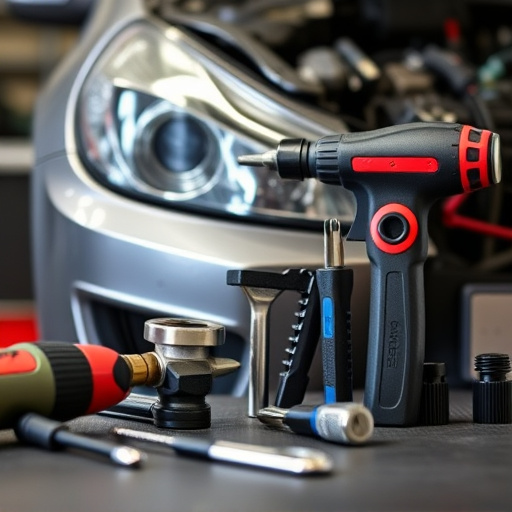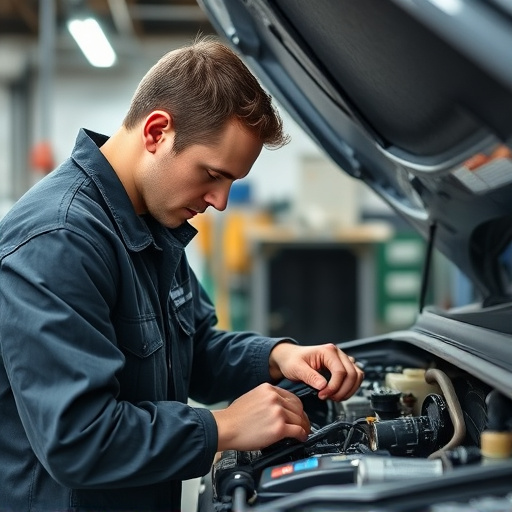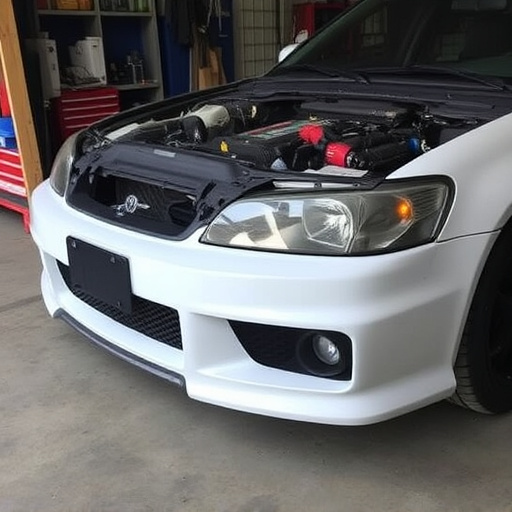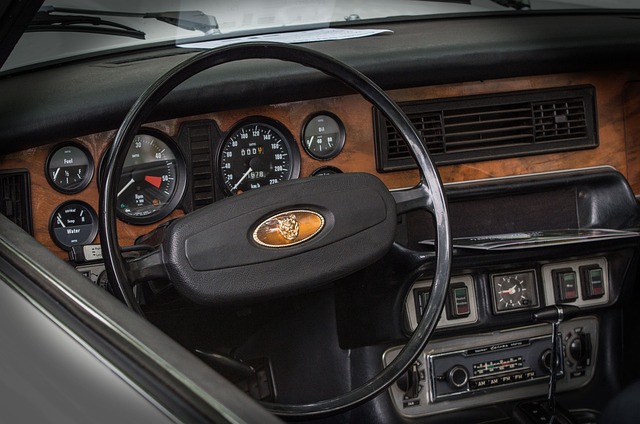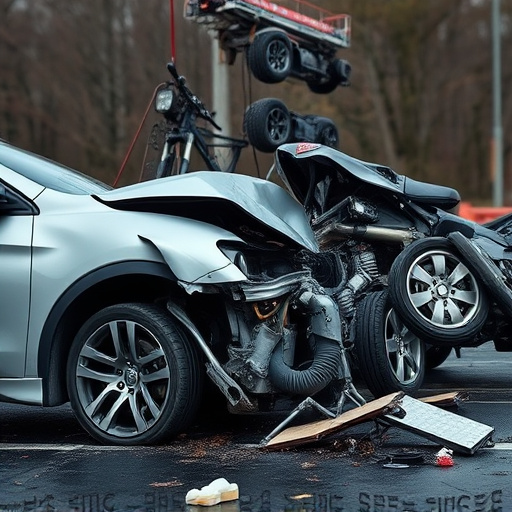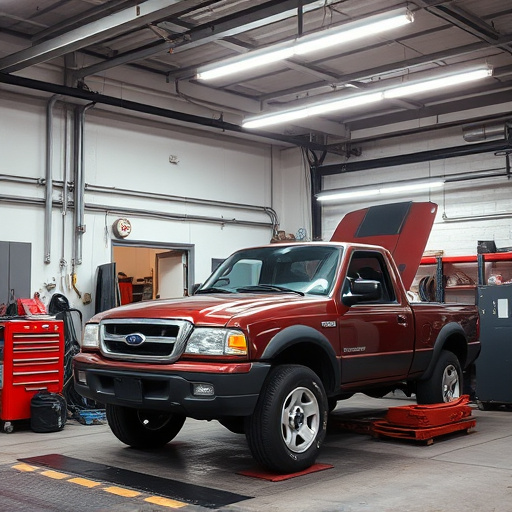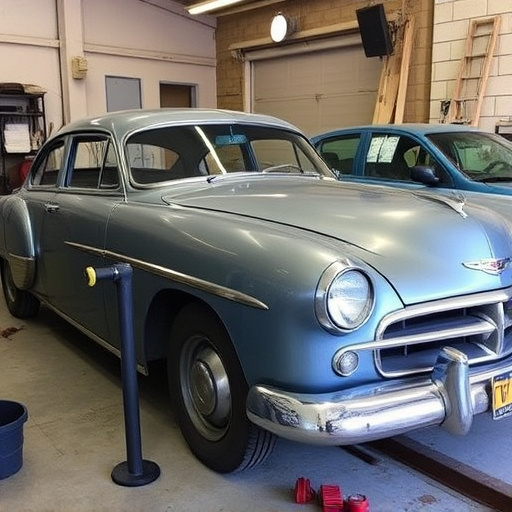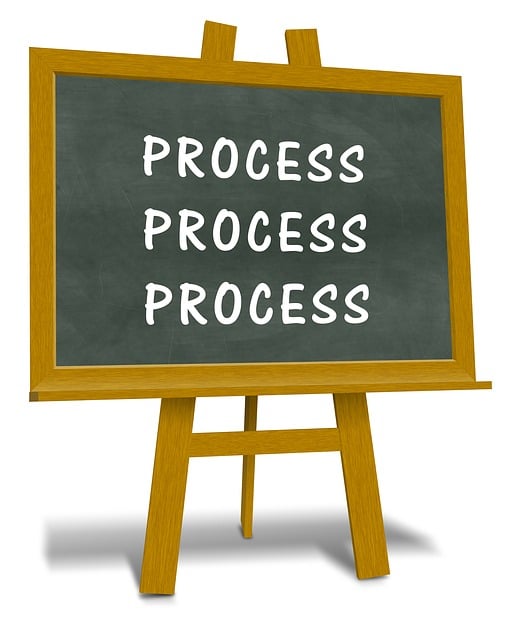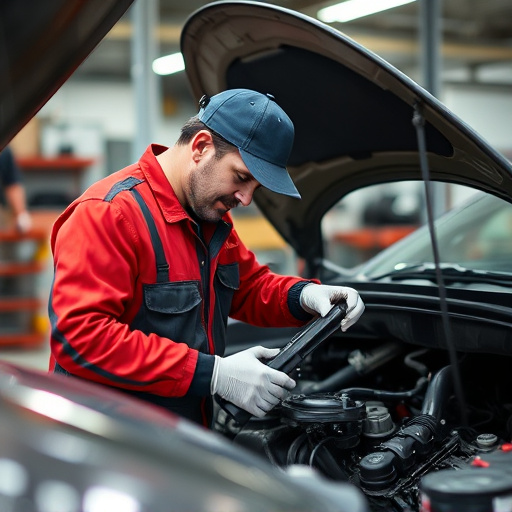Collision repair cost varies based on damage extent, influenced by labor rates, part availability, vehicle make, rarity of parts, and shop reputation. Vehicle history impacts resale value, with minor repairs enhancing appeal while severe incidents incurring high costs. Regular maintenance and prompt addressing of damages at reputable shops mitigate collision repair expenses, positively affecting resale value. Dealers can enhance transparency by offering pre-collision repair assessments and partnering with competitive services.
Collision repair cost is a significant factor influencing vehicle resale value. This article delves into the intricate relationship between these two aspects, offering a comprehensive overview of how collision repairs impact car resale prices. We explore the direct effects, providing insights for both car owners and dealers to mitigate losses. Understanding collision repair costs is essential in today’s market, where even minor incidents can significantly affect a vehicle’s resale value.
- Understanding Collision Repair Costs: A Comprehensive Overview
- The Direct Impact on Vehicle Resale Value
- Mitigating Losses: Strategies for Car Owners and Dealers
Understanding Collision Repair Costs: A Comprehensive Overview

Collision repair costs can vary greatly depending on several factors, making it essential for vehicle owners to have a comprehensive understanding before deciding on repairs. The primary determinant is the extent of damage; minor dents and scratches may only require paintless dent repair, a cost-effective solution that preserves the original factory finish. However, more severe collisions might necessitate complex procedures such as panel replacement, painting, and alignment, significantly driving up expenses. These costs are influenced by regional differences in labor rates and the availability of parts.
Additionally, factors like the make and model of the vehicle, rarity of specific parts, and the reputation of the auto repair shop play a role. Reputable shops may charge premium prices for high-quality materials and specialized auto repair services, ensuring accurate repairs that maintain or even enhance the vehicle’s resale value. Understanding these nuances is vital for making informed decisions regarding collision repair, ultimately affecting the overall financial outcome post-resale.
The Direct Impact on Vehicle Resale Value
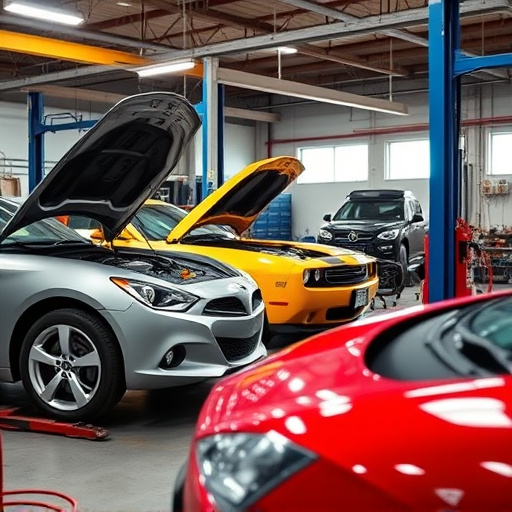
A vehicle’s resale value is significantly influenced by its history, and a notable factor in this equation is the extent of any collision repair work. When a car sustains damage, either from an accident or minor bumps and scratches, the cost of fixing it can have a direct and lasting impact on its future market value. The resale value takes into account not just the vehicle’s current condition but also how well it has been maintained and any repairs that have been undertaken.
Collision repair centers and auto body shops play a crucial role in this scenario, as they are responsible for restoring vehicles to their pre-accident condition. While dent removal and other cosmetic fixes might initially enhance the car’s appeal, the overall cost of collision repair can add up, especially for more severe incidents. As such, potential buyers will consider these costs when evaluating a used car’s value, which can result in either a higher or lower resale price, depending on the perceived efforts required to bring it back to optimal condition.
Mitigating Losses: Strategies for Car Owners and Dealers
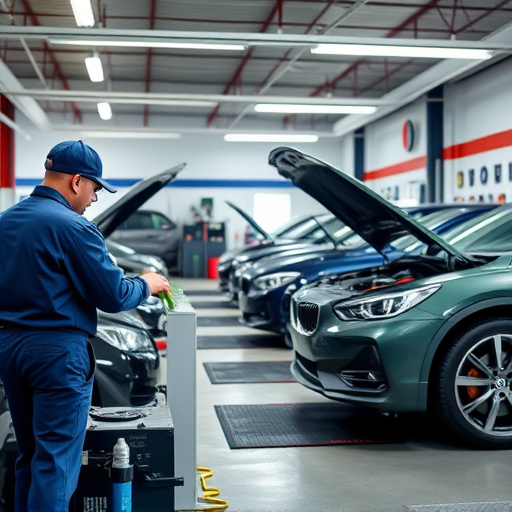
Collision repair cost is a significant factor that can impact a vehicle’s resale value. To mitigate losses, car owners and dealers alike can employ several strategies. For owners, regular maintenance checks can help prevent minor damages from escalating into costly repairs. Promptly addressing issues like dents, scratches, or fender benders at a reputable car body shop near me can significantly enhance the vehicle’s overall condition and resale appeal.
Dealers can also play a crucial role in minimizing losses by offering pre- collision repair assessments and recommendations to buyers. This proactive approach ensures that potential customers are aware of any existing damage and its impact on the vehicle’s performance, thus fostering transparency and building trust. Additionally, dealers can partner with trusted auto repair services known for their high-quality work and competitive pricing, ensuring that both parties benefit from a positive transaction while preserving the car’s resale value.
Collision repair cost plays a significant role in determining a vehicle’s resale value. By understanding how these costs impact the market, car owners and dealers can implement strategies to mitigate losses and ensure better financial outcomes. Awareness of repair expenses, along with adopting efficient practices, is key to navigating the post-collision landscape and maximizing resale potential.

